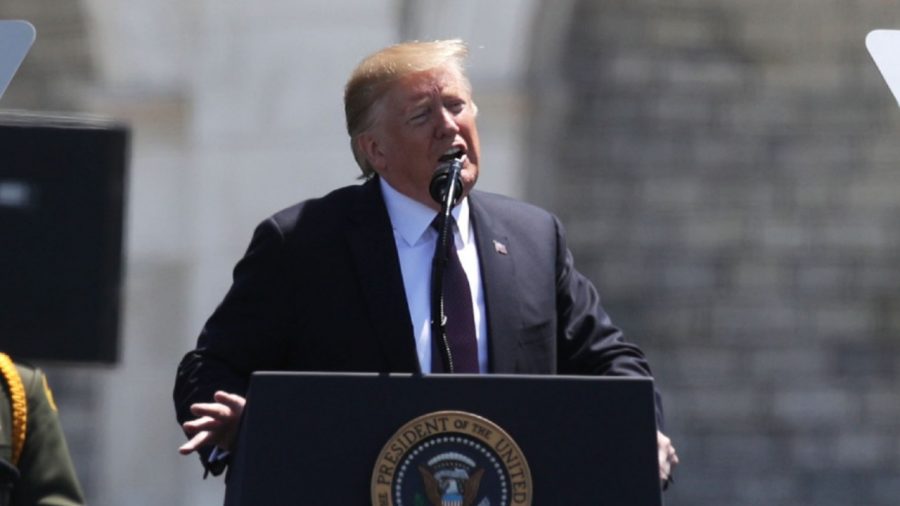President Donald Trump on May 15 signed an executive order declaring a national emergency and barring U.S. companies from using telecommunications equipment made by firms posing a national security risk, paving the way for a ban on doing business with China‘s Huawei Technologies Co.
The order, which does not name any company, declared a national emergency to protect U.S. computer networks from “foreign adversaries.”
Reuters reported on May 14 that Trump was expected to take action on the long-awaited proposal this week. The executive order invokes the International Emergency Economic Powers Act, which gives the president the authority to regulate commerce in response to a national emergency that threatens the United States.

The order directs the Commerce Department, working with other government agencies, to draw up a plan for enforcement.
Analysts believe the order is mainly targeting Chinese telecom giant Huawei.
Washington believes equipment made by Huawei, the world’s largest maker of network communications gear, could be used by the Chinese regime to spy.
The United States has been actively pushing other countries not to use Huawei’s equipment in next-generation 5G networks that it calls “untrustworthy.” In August 2018, Trump signed a bill that barred the U.S. government itself from using equipment from Huawei and another Chinese provider, ZTE Corp.

In January, U.S. prosecutors charged two Huawei units in Washington state saying they conspired to steal T-Mobile trade secrets, and also charged Huawei and its chief financial officer Meng Wanzhou with bank and wire fraud on allegations that the company violated sanctions against Iran.

The Federal Communications Commission in April 2018 voted to advance a proposal to bar the use of funds from a $9 billion government fund to buy equipment or services from companies that pose a security threat to U.S. communications networks.
Federal Communications Commission Chairman Ajit Pai recently said he was waiting for the Commerce Department to express views on how to “define the list of companies” that would be prohibited under the FCC proposal.

The FCC voted unanimously to deny China Mobile’s bid to provide U.S. telecommunications services on May 9 and said it was reviewing similar prior approvals held by China Unicom and China Telecom Corp.
The issue has taken on new urgency as U.S. wireless carriers look for partners as they roll out 5G networks.
While the big wireless companies have already cut ties with Huawei, small rural carriers continue to rely on both Huawei and ZTE switches and other equipment because they tend to be cheaper.

The Rural Wireless Association, which represents carriers with fewer than 100,000 subscribers, estimated that 25 percent of its members had Huawei or ZTE equipment in their networks, it said in an FCC filing in December 2018.
At a hearing on May 14, U.S. senators raised alarm about allies using Chinese equipment in 5G networks.
By David Shepardson


